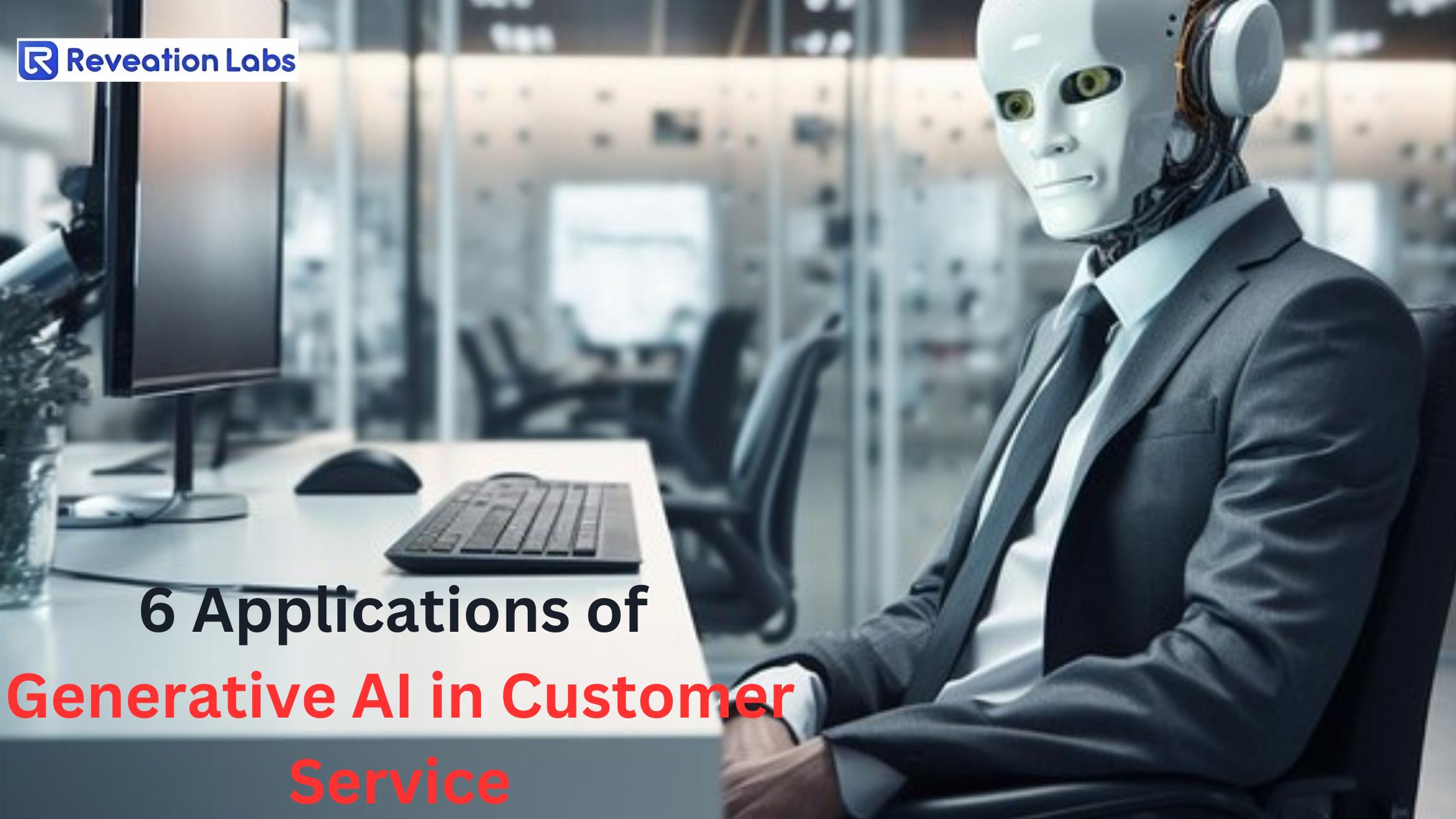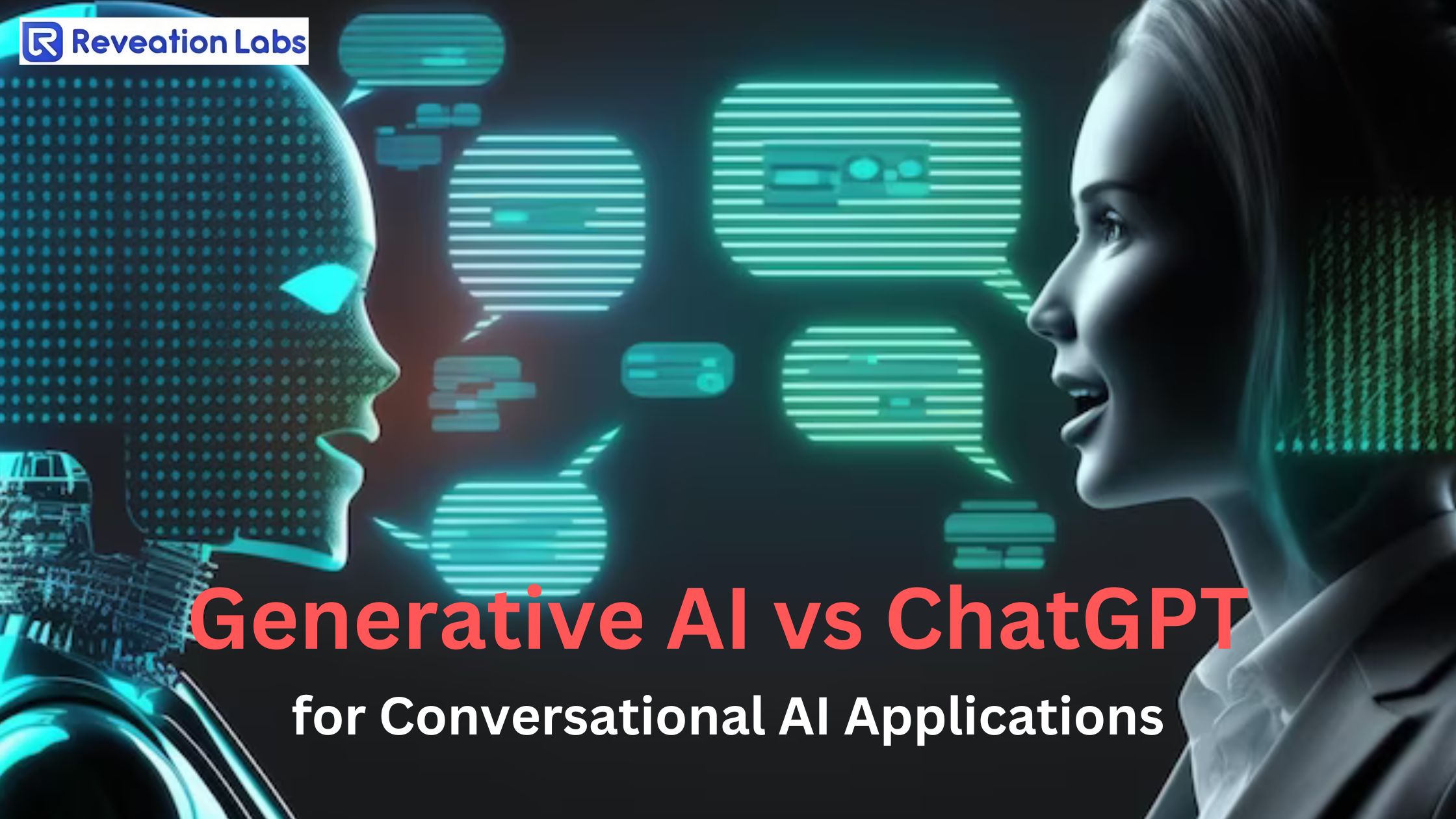Jhansi Pothuru
Mon Oct 30 2023


Have you ever been stuck in a communication jam in the world of healthcare? It's more common than you might think. From misunderstandings between doctors and patients to the never-ending email overload, healthcare communication often feels like a puzzle with missing pieces.
Imagine the precious time lost when vital information doesn't get through during an emergency, the frustration of dealing with an overflowing email inbox, and the struggle to understand complex medical terms. These challenges can have real consequences on patient care and healthcare efficiency.
But here's where ChatGPT comes to the rescue. Think of it as your healthcare communication sidekick. It's not just technology; it's a friendly face in the world of healthcare, simplifying medical language, making patient-doctor conversations smoother, and improving healthcare interactions.
In this blog, we're taking a journey into the world of ChatGPT in healthcare, and we promise it won't be filled with complex jargon or tech-speak. We'll show you how to set up ChatGPT, customize it to your specific needs, and make the most of its potential.
Contents covered in this Blog
Exploring ChatGPT's Services and Benefits in Healthcare
Implementing ChatGPT in Healthcare
Customizing ChatGPT for Healthcare Needs
Mastering ChatGPT: Best Practices for Healthcare Professionals
Resolving Common ChatGPT Integration Challenges in Healthcare
Exploring Alternative Healthcare Productivity Solutions
Conclusion

Exploring ChatGPT's Services and Benefits in Healthcare
In the World of healthcare, the right tools can make all the difference. ChatGPT is one such tool, and its potential to revolutionize healthcare is nothing short of remarkable.
ChatGPT's Range of Services in Healthcare
ChatGPT isn't your run-of-the-mill AI; it's a versatile powerhouse. It offers a range of services and capabilities that can transform healthcare. Let's get into some of these key services:
Benefits for Doctors and Patients
The advantages of ChatGPT in healthcare extend to both doctors and patients.
For doctors, ChatGPT acts as an invaluable assistant. It can help with research, generate documentation, and provide quick answers to medical queries. This not only streamlines their work but also reduces the time spent on administrative tasks, allowing them to focus more on patient care.
Patients, on the other hand, experience improved communication and access to accurate information. ChatGPT can answer their questions, explain medical procedures in plain language, and provide guidance on managing their health. It empowers patients, making them more informed and engaged in their healthcare journey.
Additionally, ChatGPT's role in appointment scheduling ensures that patients can conveniently book appointments with their healthcare providers, reducing the hassle of finding the right time slot.
Moreover, medicine reminders delivered by ChatGPT enhance patient stick to treatment plans, contributing to better health outcomes. Patients can also benefit from the AI's health tips, receiving advice on staying healthy and managing their well-being between doctor visits.
In essence, ChatGPT brings a host of services to the healthcare table, enhancing the way information is shared, medical documents are created, and patient interactions are managed. Its advantages extend to both medical professionals and those under their care, marking a significant step towards a more efficient, patient-centric, and healthier healthcare experience.
Suggested: How to Enhance Your Website with ChatGPT Integration
Implementing ChatGPT in Healthcare
When it comes to implementing new technology in healthcare, the setup process can often feel like a difficult task. But fear not; introducing ChatGPT into your healthcare environment is easier than you might think.
Step-by-Step Guide: Setting Up ChatGPT for Healthcare
Let's break it down into manageable steps:
1. Define Your Goals: Before diving into the setup, identify your goals. What do you want to achieve with ChatGPT in healthcare? Whether it's improving patient communication, streamlining administrative tasks, or enhancing the quality of care, having clear objectives is essential.
2. Select the Right Model: ChatGPT offers different models to suit your needs. Choose the one that aligns with your healthcare goals, whether it's chatbots for patient inquiries, automated documentation, or appointment scheduling.
3. Data Integration: For ChatGPT to work seamlessly in your healthcare environment, ensure it's integrated with your existing systems. This includes Electronic Health Records (EHR) and other relevant software.
4. Training ChatGPT: is a language model, so it needs to be trained on healthcare-specific data to understand and respond accurately. Training it on medical literature and patient interactions will improve its performance.
5. Customization: Tailor ChatGPT to your specific healthcare needs. This involves creating templates for common medical queries, ensuring it complies with healthcare regulations, and fine-tuning its responses for accuracy.
6. Testing: Before deploying ChatGPT, rigorous testing is essential. Run it through scenarios to ensure it responds correctly and maintains patient privacy. This step is so important to identify and rectify any issues.
7. Deployment: Once you're satisfied with the testing, it's time to deploy ChatGPT in your healthcare setting. Whether it's integrated into your website, patient portal, or a dedicated platform, deployment should be seamless.
8. Training Staff: It's vital to train your staff on how to work alongside ChatGPT. They should understand its capabilities and limitations, ensuring a smooth coexistence.
The Importance of a Smooth Setup Process
The setup process is the foundation for a successful ChatGPT integration. A well-structured setup guarantees that ChatGPT functions optimally, aligns with your healthcare objectives, and offers a seamless experience to both healthcare professionals and patients.
A smooth setup process not only enhances the efficiency of healthcare operations but also ensures that ChatGPT can deliver on its promises, whether it's improving communication, simplifying administrative tasks, or elevating patient care. So, take your time to set it up right, and you'll reap the benefits of ChatGPT in healthcare.
Customizing ChatGPT for Healthcare Needs
Technology is constantly evolving to cater to our specific needs. ChatGPT, a powerful AI language model, is no exception. It's incredibly versatile, and the healthcare industry has found skillful ways to tailor it to their specialized requirements.
The Versatility of ChatGPT: ChatGPT is adaptable to various contexts. In healthcare, it's become an invaluable tool. Imagine it as a skilled tailor, customizing healthcare tasks. It can do so much more than simple conversation. It can assist in medical research, patient communication, and administrative tasks, enhancing efficiency and accuracy in healthcare settings.
Examples of Customization Options
1. Medical Diagnoses Support: By fine-tuning ChatGPT on a vast dataset of medical cases and symptom descriptions, it can assist doctors in making accurate diagnoses by providing suggestions based on the symptoms described.
2. Electronic Health Record Management: Customization can also include integrating ChatGPT into EHR systems. It can help healthcare professionals access and update patient records, ensuring real-time, accurate information.
3. Medication Information Retrieval: ChatGPT can be customized to provide comprehensive information on medications, dosages, interactions, and side effects. This is particularly useful for pharmacists and nurses.
4. Patient Interaction and Education: Customized chatbots can interact with patients, answering their queries, providing health education, and even scheduling appointments, enhancing the overall patient experience.
In conclusion, ChatGPT is a highly adaptable tool that can be tailored to meet the specific needs of healthcare professionals. Its potential is vast, and by customizing it, healthcare practitioners can streamline their processes and provide better care to their patients.
Also Read: The Role of ChatGPT for Customer Service: A Detailed Guide
Mastering ChatGPT: Best Practices for Healthcare Professionals
In an era where healthcare professionals are constantly seeking more efficient and effective ways to provide care, ChatGPT has emerged as a game-changer. To maximize its potential and ensure the best outcomes in healthcare settings, it's crucial to understand and implement best practices. In this article, we'll delve into how healthcare professionals can master ChatGPT.
Expert Tips and Guidelines for Optimizing ChatGPT in Healthcare
1. Data Privacy and Security: Always ensure that any patient data you use with ChatGPT is handled securely and in compliance with privacy regulations like HIPAA. Encrypt and protect sensitive information to maintain patient confidentiality.
2. Continuous Training: Regularly update and fine-tune your ChatGPT model to adapt to the latest medical research and guidelines. This ensures the information provided remains accurate and up-to-date.
3. Interpretation, Not Replacement: Use ChatGPT as a tool to support your decision-making, not as a replacement for professional judgment. It can provide insights and suggestions, but the final decisions should be made by healthcare professionals.
4. Transparency: When ChatGPT is interacting with patients, it should be transparent that they are conversing with an AI. This helps manage patient expectations and fosters trust.
Dos and Don'ts for Healthcare Professionals
Dos:
Don'ts:
Resolving Common ChatGPT Integration Challenges in Healthcare
The integration of ChatGPT into healthcare practices is a transformative step toward efficiency and improved patient care. However, as with any technology adoption, there can be bumps along the way. So, let’s explore common challenges healthcare professionals may face during the implementation of ChatGPT and provide practical solutions to navigate these obstacles smoothly.
Addressing Common Issues in ChatGPT Integration for Healthcare
1. Data Compatibility: A common hurdle is ensuring that ChatGPT aligns seamlessly with existing healthcare data systems, including Electronic Health Records (EHRs). Mismatched data structures can lead to integration issues, making it challenging to extract meaningful insights.
Solution: Collaborate closely with your IT department to develop custom APIs or middleware solutions that bridge the gap between ChatGPT and your current systems. This will ensure a harmonious integration of data.
2. HIPAA Compliance: Healthcare is synonymous with strict privacy regulations, and maintaining HIPAA compliance is non-negotiable. Integrating ChatGPT while adhering to these stringent standards can be a significant challenge.
Solution: Opt for a ChatGPT provider that offers HIPAA-compliant solutions. Encrypt patient data, limit access to authorized personnel, and conduct regular security audits to maintain compliance.
3. Technical Glitches: Like any technology, ChatGPT may encounter technical glitches that can disrupt its performance. Timely resolution of these issues is critical to the seamless operation of the system.
Solution: Have a dedicated IT support team or establish a direct line of communication with your ChatGPT provider to swiftly address any technical glitches as they arise.
4. User Training: Implementing ChatGPT often necessitates training healthcare staff to use the tool effectively. Resistance to adopting new technology can be a roadblock in this process.
Solution: Develop a comprehensive training program tailored to your healthcare professionals. Emphasize the benefits ChatGPT brings, such as improved patient care and streamlined tasks. Encourage open communication and provide continuous support to ease the transition.
Exploring Alternative Healthcare Productivity Solutions
While ChatGPT has emerged as a valuable tool in healthcare, it's not the only solution in the AI and technology landscape. let’s take a closer look at alternative healthcare productivity solutions that complement or supplement ChatGPT, providing healthcare professionals with a broader perspective on the available options.
Discussing Alternative Solutions
1. Medical Imaging AI: Specialized AI models designed for medical image analysis have revolutionized the field. They can assist radiologists and pathologists in diagnosing conditions based on X-rays, MRIs, CT scans, and more. These tools focus on visual data interpretation and excel in accuracy.
2. Telemedicine Platforms: Telemedicine solutions offer a robust platform for remote consultations, enhancing accessibility to healthcare services, especially in remote or underserved areas. They promote convenience and are crucial in expanding healthcare access.
3. Electronic Health Record (EHR) Optimization: EHR optimization tools focus on streamlining record-keeping, making it more user-friendly and efficient for healthcare practitioners. This is essential for maintaining comprehensive and well-organized patient data.
4. Natural Language Processing (NLP) Tools: NLP tools can work alongside ChatGPT to assist in tasks such as voice-to-text conversion and sentiment analysis in patient feedback. They enhance text-based communication and data processing.
Conclusion
In our exploration of ChatGPT's services in healthcare, we've uncovered a world of possibilities that can revolutionize healthcare practices and enhance patient care. ChatGPT offers a wide range of services, from medical diagnoses support to streamlined electronic health record management, and its benefits extend to both doctors and patients, making healthcare more efficient and accessible. However, it's not a one-size-fits-all solution, and alternative tools like medical imaging AI, telemedicine platforms, and NLP tools play a crucial role in complementing ChatGPT, depending on specific needs.
Customization and mastering ChatGPT are essential, allowing healthcare professionals to fine-tune this powerful tool, adhere to best practices, and navigate integration challenges effectively. While challenges like data compatibility and HIPAA compliance may arise, with the right solutions, seamless integration is possible. By embracing these options and fostering a future of healthcare that's efficient, accessible, and patient-centered, ChatGPT promises a bright future for healthcare professionals and patients alike.
Why Reveation Labs
We are a team that is technically proficient and simultaneously caring for your business. Our ideology is to provide the latest technologies that suit your business well.
Let’s discuss your requirements!
Give your business the next-gen technology it deserves. Be a part of our family of successful enterprises that work on high-end software solutions.
Experts
In all the latest technologies and developments.
Creative
To innovate the best solutions and pick the right technology for you.
Ethical
To always put you first & respect your business values and procedures.
Dedicated
To meet the deadlines and help you until the very end and beyond.
Approachable
For all your business needs and queries at any point of time.
Transparent
In our ways of working.




